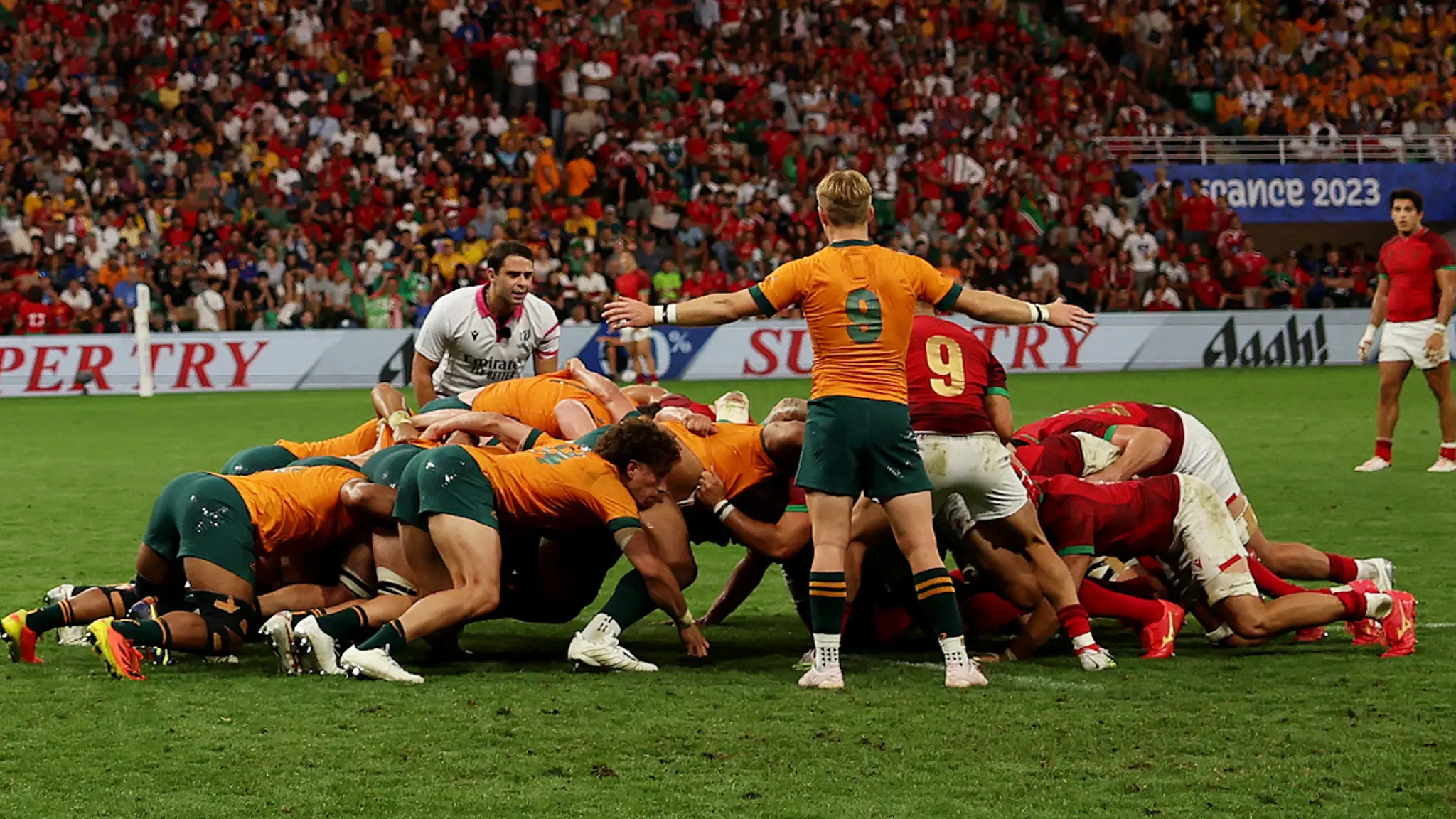Advertisement
Australian rugby brutally exposed after World Cup struggles

Well before it was plagued by upheaval, shoddy performances and financial woes, Australian rugby was widely lauded and the Wallabies deemed the country's favourite winter team.
Two decades ago, they came agonisingly close to securing a memorable home triumph and Australia basked in the runaway commercial and cultural success of the 2003 Rugby World Cup.
The classic final with England at a capacity 83 000 Stadium Australia in Sydney remains one of the most watched television broadcasts in Australia since data began in 2001.
But it's been a steep decline since, with the Wallabies titleless in five World Cups, hitting rock bottom in France during a humiliating campaign marked by a 40-6 capitulation to Wales.
Australia are set to exit at the pool stage for the first time as their last-eight hopes now rest with Portugal beating Fiji and denying the Pacific Islanders a losing bonus point next weekend.
"It is now time for a complete overhaul of Rugby Australia, its governance and its coaching staff," said Wallabies legend David Campese.
The recriminations have already started with immense scrutiny over besieged head coach Eddie Jones, who has had a disastrous return 18 years after he last departed the Australia post.
The combative Jones, who led the Wallabies at the 2003 World Cup, was embroiled in controversy after The Sydney Morning Herald sensationally reported he had secretly interviewed for Japan's head coach role just before the World Cup.
Jones, who replaced dumped New Zealander Dave Rennie in January, has denied the claims.
The 63-year-old has also been under fire for the selection of a youthful squad with stalwarts Michael Hooper and Quade Cooper contentiously overlooked.
With his position hanging by a thread, less than a year after being axed by England, Jones believed the spotlight should shine well beyond the Wallabies' inner sanctum, with Australia hosting the 2027 World Cup.
"It's not only the Wallabies we've got to improve, we've got to improve the whole system of Australian rugby," Jones said.
"That's not an excuse but we've just got to have a really good look at ourselves to see what we’re doing and the way we're going about our rugby.
"I've got no doubt about what I set out to do and while it may look now like a shambles, I assure you it's not."
The Wallabies' failure has exposed wider issues at the grassroots, with participation in decline, and the waning popularity of Super Rugby – a mostly Trans-Tasman competition dominated by New Zealand teams.
Australian teams have a nine-year title drought in Super Rugby, which has a considerably smaller salary cap compared to the hugely popular rival competitions of rugby league and Australian rules football.
"That's the first start that Australian rugby needs to focus on: the Super Rugby stuff," Wales coach Warren Gatland said after his side's thrashing of Australia.
"I'm not 100 per cent sure where Australian rugby goes in terms of trying to create that continuity between the national team and the Super Rugby sides."
'SEIZE THE MOMENT'
Attracting and retaining talent looms as a battle for Rugby Australia, which considered reverting to amateur status after being hit hard by the Covid-19 pandemic.
In 2022, the governing body bounced back to make an (AUD) $8.2 million profit on revenue of $129.2 million.
"We need more funds...to retain kids," said Tim Horan, a two-time World Cup winner for Australia.
"We need to focus on prioritising the retention of schoolboy talent to broaden our player base and keep the best youngsters."
Rugby Australia chairman Hamish McLennan believed the Wallabies' dire campaign has hastened the need for Rugby Australia to follow the lead of countries like Ireland and adopt a centralised system rather than the current federated model.
"In Australia, rugby has a model that is very similar to the state and federal government makeup. For a sport, that is inefficient," he told The Australian Financial Review.
"Ireland is No 1. They have a highly centralised model that ensures contracting, strength and conditioning, coaching and high-performance programmes are centrally managed.
"We've been talking about structural change for quite a few years. We need to seize the moment and fix the game once and for all."
Advertisement
